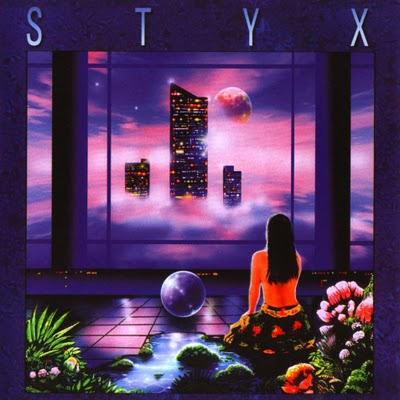
Brave New World (1999)

1.I Will Be Your Witness
2.Brave New World
3.While There's Still Time
4.Number One
5.Best New Face
6.What Have They Done To You
7.Fallen Angel
8.Everything Is Cool
9.Great Expectations
10.Heavy Water
11.High Crimes and Misdemeanors
12.Just Fell In
13.Goodbye Roseland
14.Brave New World (Reprise)
In 1982, Paul McCartney and Stevie Wonder made chart-topping history with Ebony and Ivory, a song that was less about musical innovation and more about technical wizardry: the video showed both men “performing” together despite recording their parts in separate studios on opposite sides of the world. Fast forward to 1999, and Styx—never one to shy away from theatric flourishes—unwittingly (or perhaps all too knowingly) gave that same concept a spin with their much-hyped full-length reunion album, Brave New World. But whereas McCartney and Wonder pulled off their illusion with seamless charm, the illusion here is harder to maintain. What we have is not a band, but two separate solo albums—one by Tommy Shaw, one by Dennis DeYoung—uneasily stitched together and marketed as a group effort. The real reunion magic of 1995–97 had, by now, fizzled into creative arm-wrestling and logistical disarray.
And that’s the real tragedy of it all. Because make no mistake—this was a lineup operating near its creative peak. Shaw had just come off his stellar solo album Seven Deadly Zens, and DeYoung’s musical adaptation of The Hunchback of Notre Dame was receiving serious accolades. By all logic, the stars were aligned. But instead of harnessing this momentum into something cohesive, we’re handed a scattershot collection of songs that lack the glue and energy that once defined a proper Styx album.
Production is a problem. Sequencing is a problem. The whole thing feels oddly slapdash. For example, the opener I Will Be Your Witness is a gentle, introspective number that might’ve worked beautifully midway through the album—but as a curtain-raiser after a sixteen-year studio absence? It lands with the force of a soft handshake. Ironically, the perfect opening track is here—Shaw’s blistering Everything Is Cool—but it’s buried further down. When it finally does arrive, it’s a reminder of just how vital this band could still sound when firing on all cylinders. It’s also worth noting: this was the opening number for the tour, and rightly so.
Still, credit where it’s due. DeYoung may have surrendered his hard rock credentials years ago, but he manages to sneak in a few surprises. While There's Still Time is a ballad, yes—but the acoustic guitar accompaniment and stripped-down arrangement give it a refreshing vulnerability that elevates it above his usual electric piano-fueled fare. Meanwhile, Heavy Water finds James Young in fine form, even if he shares billing with Shaw. This is pure JY, all snarling guitars and dark attitude.
Other moments land in that frustrating “almost” territory. DeYoung’s Goodbye Roseland plays like a wistful goodbye to childhood, though one suspects it may have been a thinly veiled farewell to his own tenure in Styx. It’s personal to the point of being uncomfortable—but also undeniably moving. Shaw’s title track, Brave New World, flirts with exotic scales and strange guitar riffs, but somehow it all works. It’s adventurous without being alienating, which is more than could be said for some of the band’s earlier detours.
The rest? Well… it’s competent, certainly. No glaring misfires, but nothing that suggests the pursuit of perfection that gave us The Grand Illusion or even Cornerstone. The album, like the band itself at this point, is fragmented. The “Dennis camp” and the “Tommy/JY camp” are clearly operating with different agendas, and it shows. When DeYoung later denounced the album publicly, it raised eyebrows—but in truth, he wasn’t wrong.
In the end, Brave New World feels less like a triumphant return and more like a reluctant truce. There's decent music in here, yes. But it’s buried beneath a shaky framework, strained relationships, and the lingering echo of what could’ve been a magnificent chapter in Styx history. Instead, it reads like an epilogue—and not one they wanted to write.
Go back to the main page
Go To Next Review